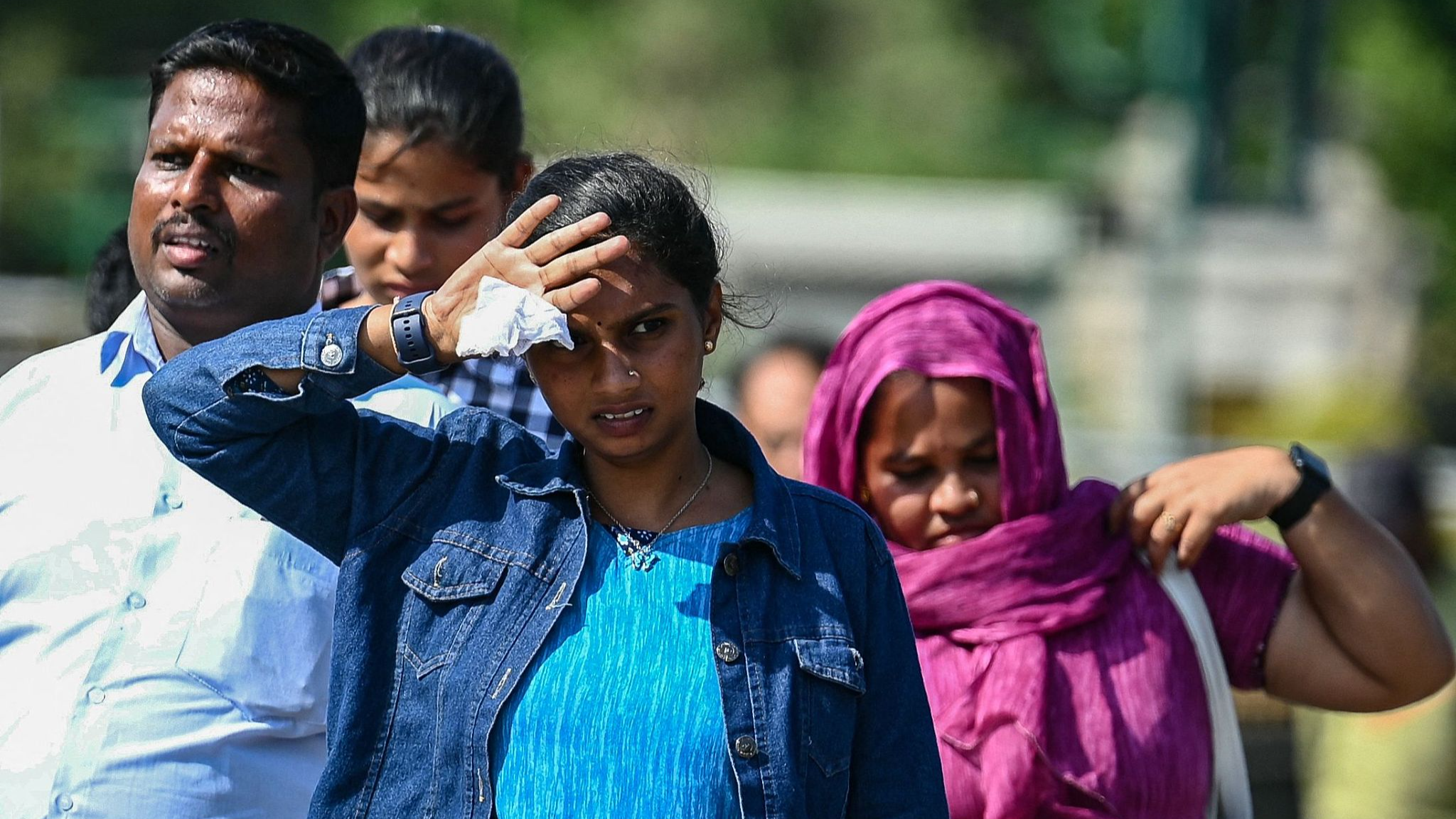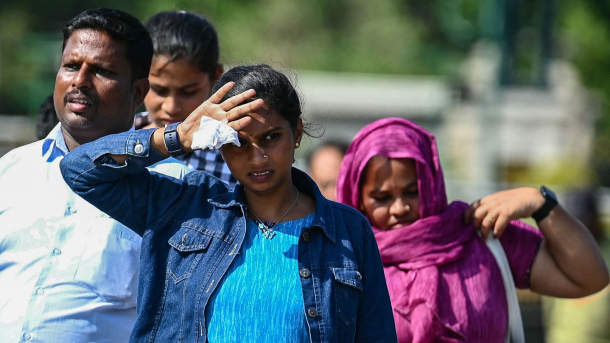 A woman shields herself from the sun on a hot summer day, Bengaluru, India, April 29, 2024. /CFP
A woman shields herself from the sun on a hot summer day, Bengaluru, India, April 29, 2024. /CFP
A woman shields herself from the sun on a hot summer day, Bengaluru, India, April 29, 2024. /CFP
At least two people have died in the southern Indian state of Kerala due to suspected heat stroke, media reported on Monday, as the country battles temperatures soaring to record levels.
A 90-year-old woman and a 53-year-old man died in Kerala on Sunday, the Hindu newspaper reported, as temperatures soared to 41.9 degrees Celsius, nearly 5.5 degrees Celsius above normal.
“We are yet to confirm whether these deaths were due to heat waves. The medical process for examining the deaths is on,” state disaster management official Shekhar Kuriakose said in the state capital Thiruvananthapuram.
Scientists have said climate change is contributing to more frequent, severe and longer heat waves during summer months.
Temperatures across Kerala, at India’s southern tip, were expected to be higher than normal, causing authorities to issue warnings asking people to take precautions against the heat, such as staying indoors.
In neighboring Tamil Nadu state, a local politician was handing out fresh fruit, coconuts and cold drinks in Chennai to help people keep cool.
India’s weather department has predicted more heat-wave days than normal between April and June, when the monsoon will hit and temperatures usually fall.
In the eastern state of Odisha, where temperatures touched 44.9 degrees Celsius on Sunday, the highest recorded in April, at least two people have died this summer of sun stroke, said Odisha’s public health director Niranjan Mishra.
In neighboring Bangladesh, authorities again closed all primary schools across the country and educational institutions in almost half of districts, including the capital, as a severe heat wave saw temperatures climb above 43 degrees Celsius on Monday.
But for those who work outdoors, like rickshaw driver Mohammed Shameem in Dhaka, there is not much respite.
“It is too hard to work under the sun during a brutal heat wave. There are not many people who are coming out, which means getting passengers is tough. But we have no option but to come out and work,” Shameem said.
Source(s): Reuters



